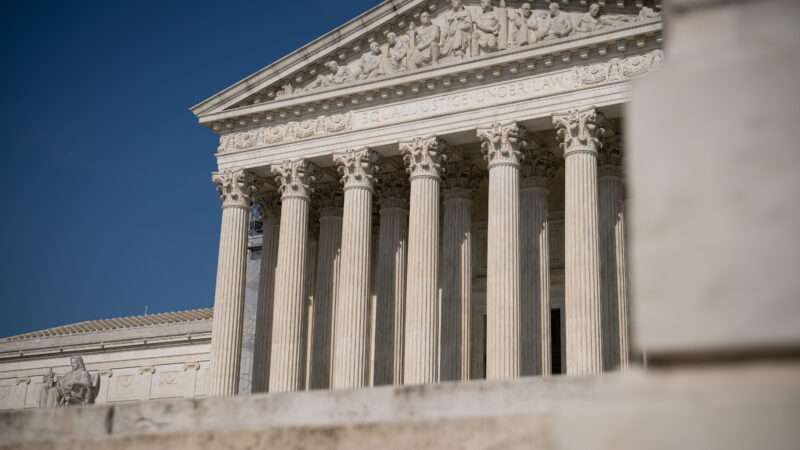
In an 8–1 ruling today, the Supreme Court dismissed a challenge brought by two states against the Biden administration's deportation priorities. The ruling means the Biden administration may now reinstate those enforcement guidelines.
Texas and Louisiana sued the Biden administration over its updated guidance in April 2021, arguing that it violated federal statutes that require certain noncitizens to be detained. A district judge in Texas ruled for the states, and the U.S. Court of Appeals for the 5th Circuit upheld that ruling. But today, the Supreme Court held that the states lacked standing to sue under Article III of the Constitution. Justice Brett Kavanaugh, writing for the majority, noted that "this Court has long held 'that a citizen lacks standing to contest the policies of the prosecuting authority when he himself is neither prosecuted nor threatened with prosecution.'"
United States v. Texas centered on the executive branch's authority of prosecutorial discretion, or the ability to decide who to detain and deport. "The Executive Branch must prioritize its enforcement efforts" because it "invariably lacks the resources to arrest and prosecute every violator of every law," noted today's opinion. "That reality is not an anomaly—it is a constant."
The Biden administration issued new deportation guidelines in 2021, which prioritized the arrest and removal of noncitizens who are "suspected terrorists or dangerous criminals" and people who "unlawfully entered the country only recently." This was a drastic departure from the Trump administration's deportation policy, which called for enforcement against "all removable aliens."
There are roughly 11 million undocumented immigrants living in the U.S., according to 2019 data from the Migration Policy Institute. Nearly 80 percent of them have been in the country for over five years, and 22 percent have been here for over two decades. Research consistently indicates that undocumented immigrants have lower crime rates than native-born Americans. In this context, it makes little sense for the federal government to focus its resources on across-the-board deportations; it would be extremely costly and largely target long-present, peaceful residents.
The Supreme Court did not rule on whether the executive branch "is complying with the relevant statutes," noted the majority opinion—holding "only that the federal courts are not the proper forum to resolve this dispute." Rather, Congress "possesses an array of tools to analyze and influence those policies," and American voters can "hold elected officials to account for enforcement decisions."
Justice Samuel Alito was the sole dissenter, arguing that the states did indeed have standing to sue and expressing concern about the "sweeping Executive Power endorsed by today's decision." The majority opinion notes that today's decision "is narrow and simply maintains the longstanding jurisprudential status quo," calling the states' lawsuit "extraordinarily unusual."
"If the Court green-lighted this suit, we could anticipate complaints in future years about alleged Executive Branch under-enforcement of any similarly worded laws—whether they be drug laws, gun laws, obstruction of justice laws, or the like," Kavanaugh wrote. "We decline to start the Federal Judiciary down that uncharted path."
The post Supreme Court Rejects 'Extraordinarily Unusual' Case Against Biden's Deportation Policy appeared first on Reason.com.







